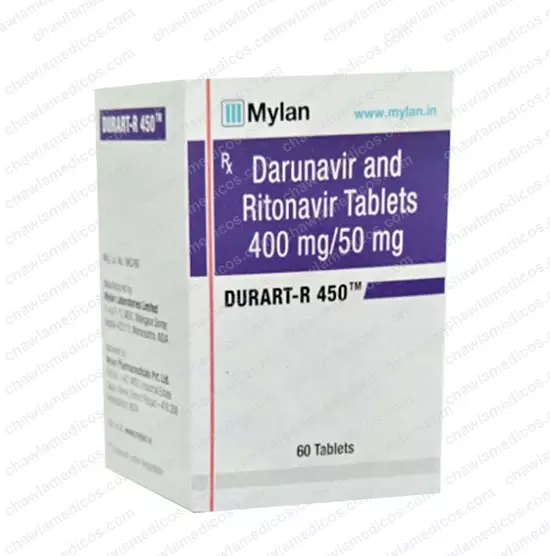Introduction to Hepatitis C Medicine
Hepatitis C is a viral infection that affects millions worldwide, causing liver inflammation and potentially leading to severe liver damage if left untreated. Fortunately, advancements in medical science have led to the development of highly effective Hepatitis C Medicine. These medications have transformed the treatment landscape, offering hope and healing to patients. In this blog, we’ll explore everything you need to know about Hepatitis C Medicine, from its evolution to the latest breakthroughs, ensuring you stay informed and empowered.
Understanding Hepatitis C: Causes and Symptoms
Hepatitis C is caused by the Hepatitis C virus (HCV), which spreads through contact with infected blood. Common symptoms include fatigue, jaundice, abdominal pain, and dark urine. However, many individuals remain asymptomatic for years, making early detection challenging. Hepatitis C Medicine plays a crucial role in managing the infection, preventing complications like cirrhosis and liver cancer. By understanding the causes and symptoms, individuals can seek timely treatment and improve their quality of life.
The Evolution of Hepatitis C Medicine
The journey of Hepatitis C Medicine has been remarkable. Earlier treatments relied on interferon-based therapies, which often had severe side effects and low cure rates. Today, direct-acting antivirals (DAAs) have revolutionized treatment, offering cure rates exceeding 95%. These medications target specific steps in the HCV lifecycle, ensuring effective viral eradication with minimal side effects. The evolution of Hepatitis C Medicine underscores the importance of continuous research and innovation in healthcare.
How Hepatitis C Medicine Works
Hepatitis C Medicine, particularly DAAs, works by inhibiting viral replication. These medications block proteins essential for the virus’s survival, effectively stopping its spread. Treatment regimens typically last 8 to 12 weeks, depending on the genotype and severity of the infection. Unlike older therapies, modern Hepatitis C Medicine is oral, convenient, and well-tolerated. Understanding how these medications work can help patients adhere to their treatment plans and achieve optimal outcomes.
Benefits of Modern Hepatitis C Medicine
The benefits of modern Hepatitis C Medicine are undeniable. High cure rates, shorter treatment durations, and fewer side effects make these medications a game-changer. Additionally, successful treatment reduces the risk of liver-related complications and improves overall health. Access to effective Hepatitis C Medicine also contributes to public health by reducing viral transmission. These benefits highlight the importance of early diagnosis and treatment.
Common Types of Hepatitis C Medicine
Several types of Hepatitis C Medicine are available, each targeting specific HCV genotypes. Popular options include Sofosbuvir, Ledipasvir, and Glecaprevir/Pibrentasvir. These medications are often used in combination to enhance efficacy. Your healthcare provider will determine the best treatment based on factors like genotype, liver health, and medical history. Staying informed about the different types of Hepatitis C Medicine ensures you make educated decisions about your health.
Side Effects of Hepatitis C Medicine
While modern Hepatitis C Medicine is generally well-tolerated, some patients may experience mild side effects such as headaches, fatigue, or nausea. Severe side effects are rare but can include allergic reactions or liver complications. It’s essential to discuss potential side effects with your healthcare provider before starting treatment. Monitoring and open communication can help manage any adverse effects, ensuring a smooth treatment journey.
Who Should Take Hepatitis C Medicine?
Hepatitis C Medicine is recommended for individuals diagnosed with chronic HCV infection. Early treatment is crucial, especially for those with advanced liver disease or co-existing conditions like HIV. Pregnant women, children, and individuals with kidney issues may require specialized treatment plans. Consulting a healthcare professional ensures that Hepatitis C Medicine is tailored to your unique needs, maximizing its effectiveness.
The Role of Hepatitis C Medicine in Preventing Liver Damage
One of the primary goals of Hepatitis C Medicine is to prevent liver damage. By eradicating the virus, these medications halt the progression of liver inflammation, fibrosis, and cirrhosis. Early treatment can even reverse some liver damage, restoring function and improving longevity. The role of Hepatitis C Medicine in safeguarding liver health cannot be overstated, making it a cornerstone of HCV management.
Cost and Accessibility of Hepatitis C Medicine
The cost of Hepatitis C Medicine can be a barrier for some patients, with prices varying by region and healthcare system. However, many countries offer subsidies or insurance coverage to improve accessibility. Generic versions of these medications have also reduced costs, making treatment more affordable. Advocating for equitable access to Hepatitis C Medicine ensures that all patients can benefit from these life-saving treatments.
Hepatitis C Medicine and Lifestyle Changes
While Hepatitis C Medicine is highly effective, combining it with lifestyle changes can enhance outcomes. A healthy diet, regular exercise, and avoiding alcohol and tobacco support liver health and overall well-being. Patients should also stay hydrated and manage stress during treatment. Integrating these habits with Hepatitis C Medicine creates a holistic approach to recovery.
The Future of Hepatitis C Medicine
The future of Hepatitis C Medicine looks promising, with ongoing research focused on improving treatment efficacy and accessibility. Innovations like pan-genotypic medications and shorter treatment durations are on the horizon. Additionally, efforts to develop a Hepatitis C vaccine could revolutionize prevention. Staying updated on these advancements ensures you remain at the forefront of HCV care.
Myths and Facts About Hepatitis C Medicine
Several myths surround Hepatitis C Medicine, such as the belief that it’s only for severe cases or that it’s ineffective. In reality, early treatment is crucial, and modern medications offer high cure rates. Debunking these myths empowers patients to seek timely care and embrace the benefits of Hepatitis C Medicine.
Patient Stories: Success with Hepatitis C Medicine
Hearing from individuals who have successfully undergone treatment with Hepatitis C Medicine can be inspiring. These stories highlight the transformative impact of modern medications, offering hope to those newly diagnosed. Sharing patient experiences fosters a sense of community and encourages others to pursue treatment.
How to Choose the Right Hepatitis C Medicine
Choosing the right Hepatitis C Medicine involves consulting a healthcare provider who can assess your specific needs. Factors like genotype, liver health, and medical history play a role in determining the best treatment. Personalized care ensures optimal outcomes and minimizes risks.
The Global Impact of Hepatitis C Medicine
Hepatitis C Medicine has had a profound global impact, reducing the burden of HCV-related diseases and improving public health. Efforts to increase access in low-income countries are ongoing, aiming to eliminate Hepatitis C as a public health threat. The global impact of these medications underscores their importance in healthcare.
Conclusion: Embracing Hope with Hepatitis C Medicine
Hepatitis C Medicine has transformed the lives of millions, offering a cure and a brighter future. By staying informed, seeking timely treatment, and advocating for accessibility, we can continue to combat this global health challenge. Embrace hope and take the first step toward a healthier tomorrow with Hepatitis C Medicine.









